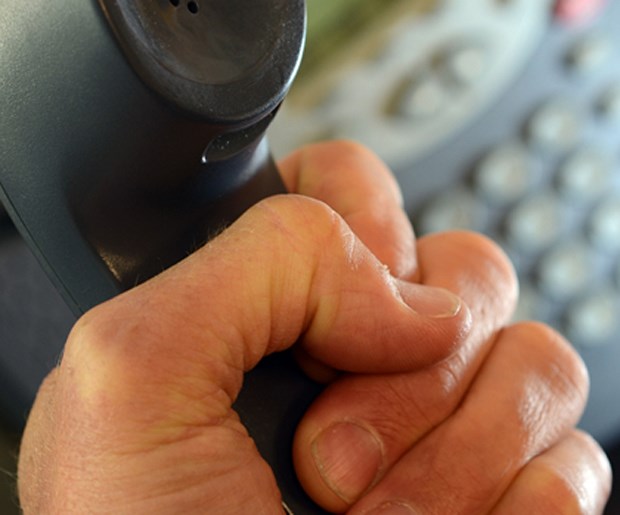How often do you think this: “Darn it, I just got another call from a scammer?”
For me these calls come on my landline (yes, I still have one) and my cellphone at least twice a day. Hanging up seems to do the trick, but even for me, and I think of myself as a shrewd person when it comes to scams, there is always a niggling doubt that maybe I should have listened to that phone message. Like, what if the Canada Revenue Agency scammer was a real CRA person? But that’s not always likely. According to a 2018 report by the Better Business Bureau, “It used to be considered common knowledge that seniors and new immigrants were the most vulnerable to fraud. However, recent reports indicate that technology-savvy youth are more likely to be swindled by fraudsters than seniors.”
In fact, according to the report “11 per cent of seniors reported losing money in a scam, while 89 per cent recognized the threat before getting fooled. Among the 18 to 24 demographic, 34 per cent reported losing money.”
The good news is that word is getting out to seniors about the dangers of scams. Walk into any seniors’ centre on the North Shore and you will find a presentation about frauds and scams or posters alerting people to them.
However, what worries me is that many seniors are still falling prey to scams. Information on the government of Canada’s website states that fraud is still the number one crime against seniors. The site suggests that seniors are targeted more often because they are often at home to answer the phone or open the door, they can be more trusting and they may not have a person close by to offer a second opinion. As seniors become more adept at using computers and the internet, they are increasing their chances of being targeted by scammers as well.
The RCMP suggests the best way to fight these types of crime is through awareness. The RCMP manages the Canadian Anti-Fraud Centre which plays a crucial role in educating the public about scams and fraud.
On the CAFC website they outline four prominent scams including: romance, service, prizes and emergency scams. The website also suggests ways to protect yourself. For instance, with the emergency scam a senior might be asked to send money via Western Union, send prepaid cards or gift cards in order to assist a family member who the scammer says has been hurt or got into an accident. You can protect yourself by confirming with other relatives the whereabouts of the family member or friend. The site also says that you should know that police, judges or legal entities will never make urgent requests for money; you should never voluntarily give out family members’ names or information to unknown callers, and always question urgent requests for money.
Another scam targeted to seniors involves scammers who call and claim to be a representative from a well-known computer company. Protect yourself by knowing a computer company will not conduct proactive outbound calls for computer repair, and never provide unsolicited callers remote access to your computer. The aforementioned CRA scam involves scammers posing as Canada Revenue Agency employees who contact Canadians misleading them into paying false debt. CRA may call you (especially) at this time of year (tax season) but only to verify your identity by asking for personal information such as your full name, date of birth, address and account or social insurance number, or ask for details about your account in the case of a business enquiry or to begin an audit process.
However, if you have any sense that you’re being scammed, hang up, wait 10 minutes and call the CRA’s general inquiries tax line at 1-800-959-8281. The CRA can look in its phone records and check if one of their agents called you. The CRA will never ask for the numbers on your passport, health card or driver’s licence over the phone.
In addition to phone calls, the CRA does contact the public through email and standard post. But they will never ask for personal or financial information, email you a link to fill in an online form, demand immediate payment by interact, e-transfer, bitcoin or prepaid credit cards, send you a link for a refund, or threaten you with arrest of a prison sentence. The CRA will never set up a meeting with you in a public place to take payment.
Unfortunately there are a number of other scams such as credit card fraud, identity theft, phone and door to door and online scams. According to the Canadian government’s website section, “What everyone should know about Frauds and Scams,” you can protect yourself by never telling another person your PIN or account passwords and take care to cover your hand when entering your PIN at bank machines and when making store purchases. Safely dispose of old bills and statements – shredding them is best. Do not click on pop-up windows or respond to emails, open attachments or go to website links sent by people you do not know. Your bank or credit union will not send you anything by email unless you ask them to. Never give out your credit card, bank account, or personal information to someone over the phone, at the door, or over the internet unless you know the person or organization you are dealing with, or you made the initial contact. Use common sense: there is no free lunch, so if an offer seems to be too good to be true you should ignore it. Take the time to get a second opinion from someone you trust. Being scammed is no joke – protect yourself as best you can.
Margaret Coates is the co-ordinator of Lionsview Seniors’ Planning Society. Ideas for future columns are welcome. Email: [email protected]
What are your thoughts? Send us a letter via email by clicking here or post a comment below.



